CBD vs. THC What's the Difference

CBD vs. THC What's the Difference
Note: When THC is used in this article, it's about delta-9-tetrahydrocannabinol.
As the use of hemp and other marijuana products grows, consumers are becoming more curious about their properties. These include cannabidiol (CBD) and tetrahydrocannabinol (THC), two natural compounds found in cannabis plants.
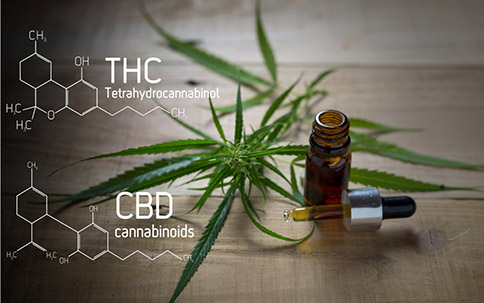
Credit for photo: https://www.cbdoil.org/cbd-vs-...
What is CBD?
CBD is short for cannabidiol, a chemical found in the cannabis plant.
It is a naturally occurring substance used in products such as oils and food products to give a feeling of calmness and relaxation.
CBD can be extracted from hemp or cannabis.
Cannabis and hemp come from the cannabis Sativa plant. Legal hemp must contain no more than 0.3% THC.
CBD is a naturally occurring substance used and sold in the form of gels, gummies, oils, supplements, extracts, etc.
Unlike its cousin Delta-9-tetrahydrocannabinol (THC), which is the other main active ingredient in cannabis, CBD is not psychoactive.
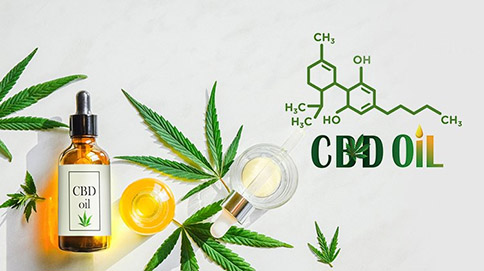
Credit for photo: https://www.healthcanal.com/he...
What is THC?
THC stands for delta-9-tetrahydrocannabinol or Δ -9-tetrahydrocannabinol (Δ -9-THC). It is a cannabinoid molecule found in cannabis and has long been known to be the main psychoactive ingredient, the substance that causes people who use cannabis to feel high.
THC can be consumed by smoking cannabis. It can also be used in oils, tinctures, capsules, foods, etc.
THC is just one of more than 400 different active substances and 60 different cannabinoid molecules found in cannabis, although THC is best known. Another important cannabinoid molecule that has received a lot of attention is cannabidiol (CBD).
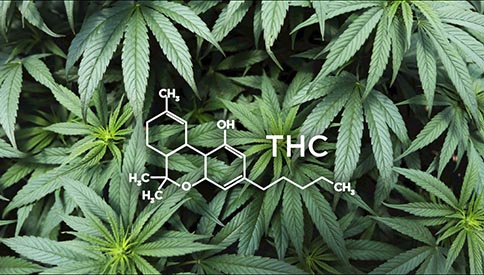
Credit for photo: https://2fast4buds.com/news/wh...
CBD and THC: chemical structure
Both CBD and THC have the same molecular structure: 21 carbon atoms, 30 hydrogen atoms, and two oxygen atoms.
Subtle differences in the way the atoms are arranged determine the difference in the effect on the human body.
Both CBD and THC are chemically similar to the body's endocannabinoid. This allows them to interact with your cannabinoid receptors.
The interaction affects the release of neurotransmitters in the brain. Neurotransmitters are chemicals that carry messages between cells and play an important role in pain, immune function, stress, and sleep as well as many other functions.
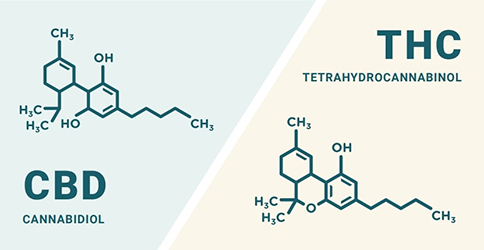
Credit for photo: https://cannabistours.com/guid...
CBD and THC: Psychoactive Components
Despite their similar chemical structure, CBD and THC do not share the same psychoactivity.
CBD is psychoactive, just not in the same way as THC. It does not produce the heady high associated with THC.
CBD has been shown to help relieve anxiety, depression, and seizures, among other things.
THC binds to cannabinoid 1 (CB1) receptors in the brain.
It creates a sense of euphoria that we identify as that cannabis high.
CBD binds very weakly (if at all) to the CB1 receptor. CBD requires THC to bind to the CB1 receptor, which in turn can help reduce some of the adverse psychological effects of THC, such as euphoria or sedation.
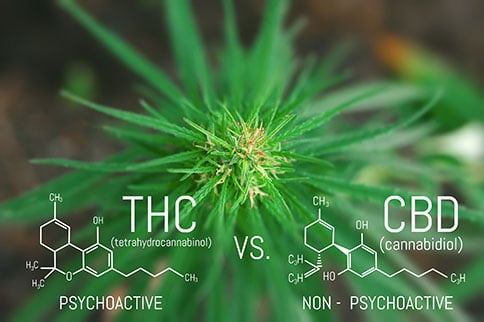
Credit for photo: https://getwildlotus.com/what-...
CBD and THC: Legal Stance
In the United States, marijuana-related laws are evolving rapidly. Technically, CBD is still considered a class 1 drug under federal law.
Hemp has been removed from the Controlled Substances Act, but the Drug Enforcement Administration (DEA) and the Food and Drug Administration (FDA) still list CBD as a Schedule 1 drug.
As of 2021, In the USA, 36 states, plus Washington, D.C., have some for or medical cannabis program on the books, and 16 states allow for some degree of recreational use cannabis use.
Cannabis may need to be prescribed by a licensed physician.
In states where marijuana is legal for recreational or medical purposes, you should be able to buy CBD.
Before trying to buy a product with CBD or THC, it is important to research the laws in your state.
Since seeing the millions of dollars in tax revenue of the early trailblazers like Colorado, Washington, and states in New England, more U.S. states, even traditional red states, have changed their stance on cannabis to cash in on the tax windfalls promised from legalization.
You may face legal penalties if you possess marijuana-related products in a state where it is illegal or if you do not have a medical prescription in a state where it is legal. Even in states where marijuana is legal, there are laws about how much you're allowed to carry on you, keep in your house, grow, and transport.
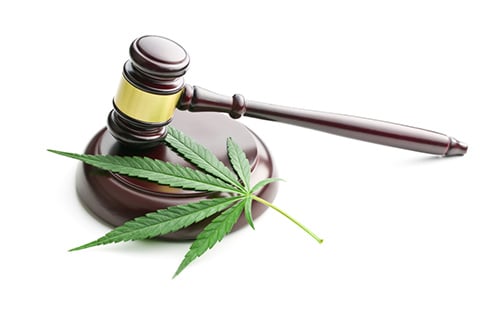
Credit for photo: https://www.salawus.com/insigh...
CBD and THC: Medical benefits
CBD and THC share many of the same medical benefits. They can relieve several of the same conditions. But CBD doesn't cause the euphoria that THC produces. In the absence of this side effect, some people may prefer CBD.
In June 2018, the FDA received official approval as a trusted source for Epidiolex, the first prescription drug to contain CBD. It is used to treat a rare form of epilepsy that is difficult to control.
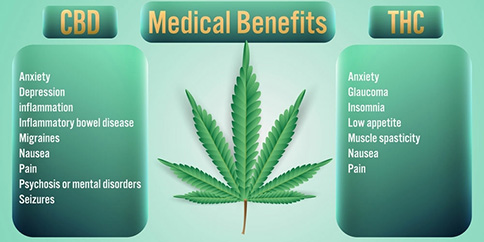
Credit for photo: http://news.unm.edu/news/notor...
CBD is commonly used to treat:
· anxiety
· insomnia
· inflammation
· inflammatory and neuropathic pain
· mental illness or disorder
· depression
· inflammatory bowel disease
· nausea
· migraines
· depression
THC is commonly used to treat:
· Chronic pain
· muscle spasticity
· glaucoma
· insomnia
· loss of appetite
· nausea
· anxiety
CBD and THC: Side effects
Even at large doses, CBD is well tolerated. Studies from many trusted sources indicate that any side effects that occur with CBD use are most likely the result of drug interactions between CBD and other medications that you may be taking.
THC can cause temporary side effects such as:
· increased heartbeat
· coordination problems
· dry mouth
· red eyes
· reaction time is slower
· memory loss
· anxiety
Side effects of CBD may include:
· appetite change
· fatigue
· loss of weight
· dizziness
· diarrhea
These side effects are part of the psychoactivity of the compound.
Neither compound is lethal. However, heavy THC use may be associated with long-term negative psychiatric effects. This is especially true for teens or minors whose brains are still developing and who consume large amounts of THC, although there is no conclusive evidence that marijuana use causes psychiatric disorders such as schizophrenia.
CBD vs. THC: Drug testing
Cannabinoids such as THC and CBD lipophilic or fat-soluble, so they end up being stored in the body's fat.
They may show up in drug tests for days or weeks after taking them.
Not every drug test can detect CBD, but CBD-sensitive tests can be used. Most standard drug tests look for chemicals associated with THC, so the use of THC or cannabis may show up on the screening.
Also, hemp can produce some THC in addition to CBD, so even if you don't use THC, the test could be positive.
It is important to note that products that claim to be THC-free may not be THC-free, so care is needed when selecting products if you want to remain THC-free.
If THC and CBD are two different compounds, why are people talking about the THC content of CBD oil?
CBD and THC are the two most prominent cannabinoids found in cannabis plants. Both hemp and cannabis produce CBD and THC.
However, cannabis is high in THC. Hemp has a high concentration of CBD.
Cannabis strains contain about 12% THC on average but can vary, and potent THC strains can contain around double that.
CBD oil may contain a small amount of THC because it is found at very low levels in the cannabis plant. At the federal level, CBD must contain less than 0.3% of THC.
Conclusion
Both CBD and THC have medical benefits. They are also considered safe but consider side effects and the possibility of interactions with other medications you are taking.
If in any doubt, consult your doctor or qualified cannabis or CBD clinician before use.





